AP World History: Modern explores key global events, movements, and transformations, It covers political, social, and technological changes across civilizations, focusing on trade, empires, revolutions, and modern global conflicts.
Free AP World History: Modern Practice Test
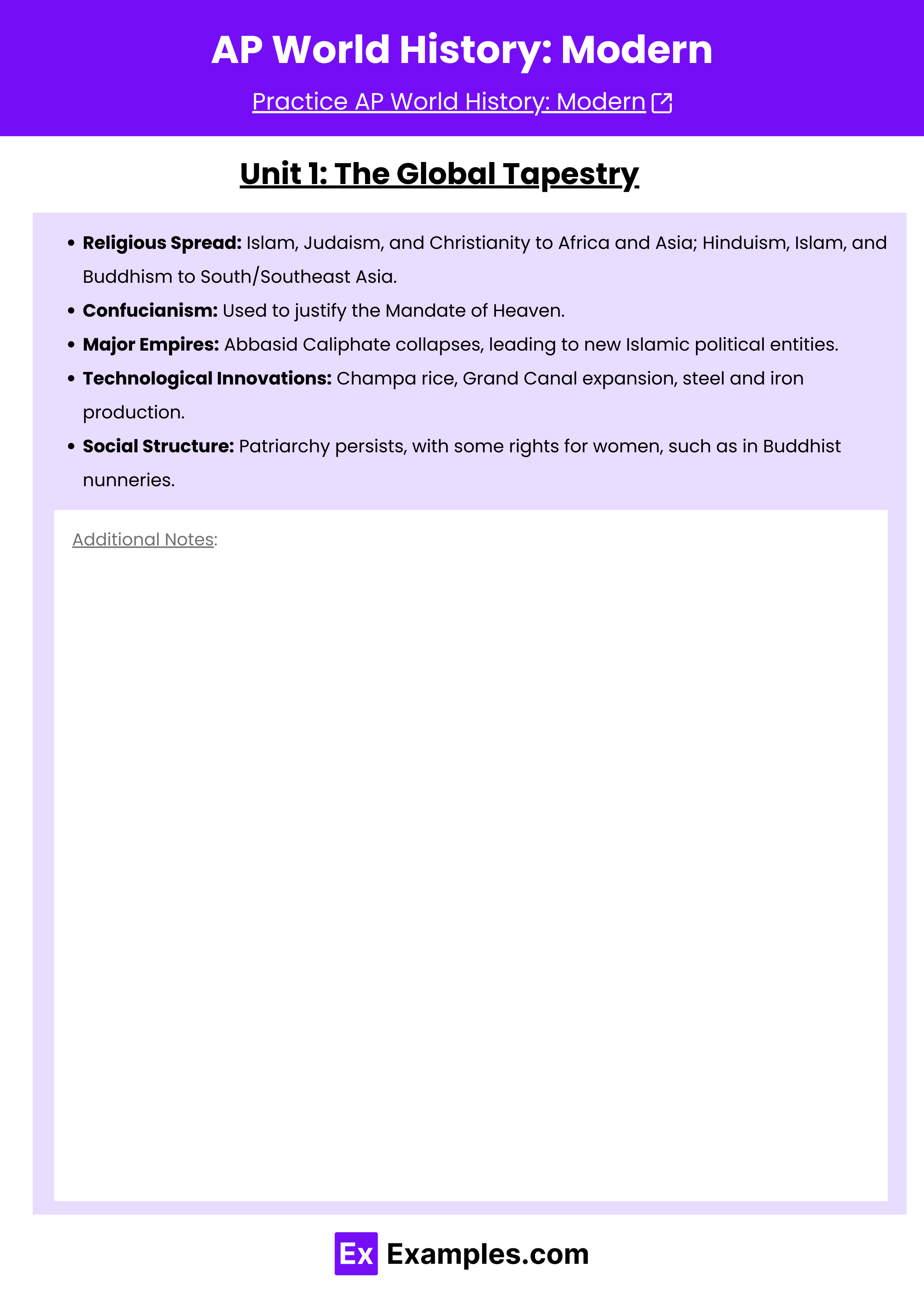
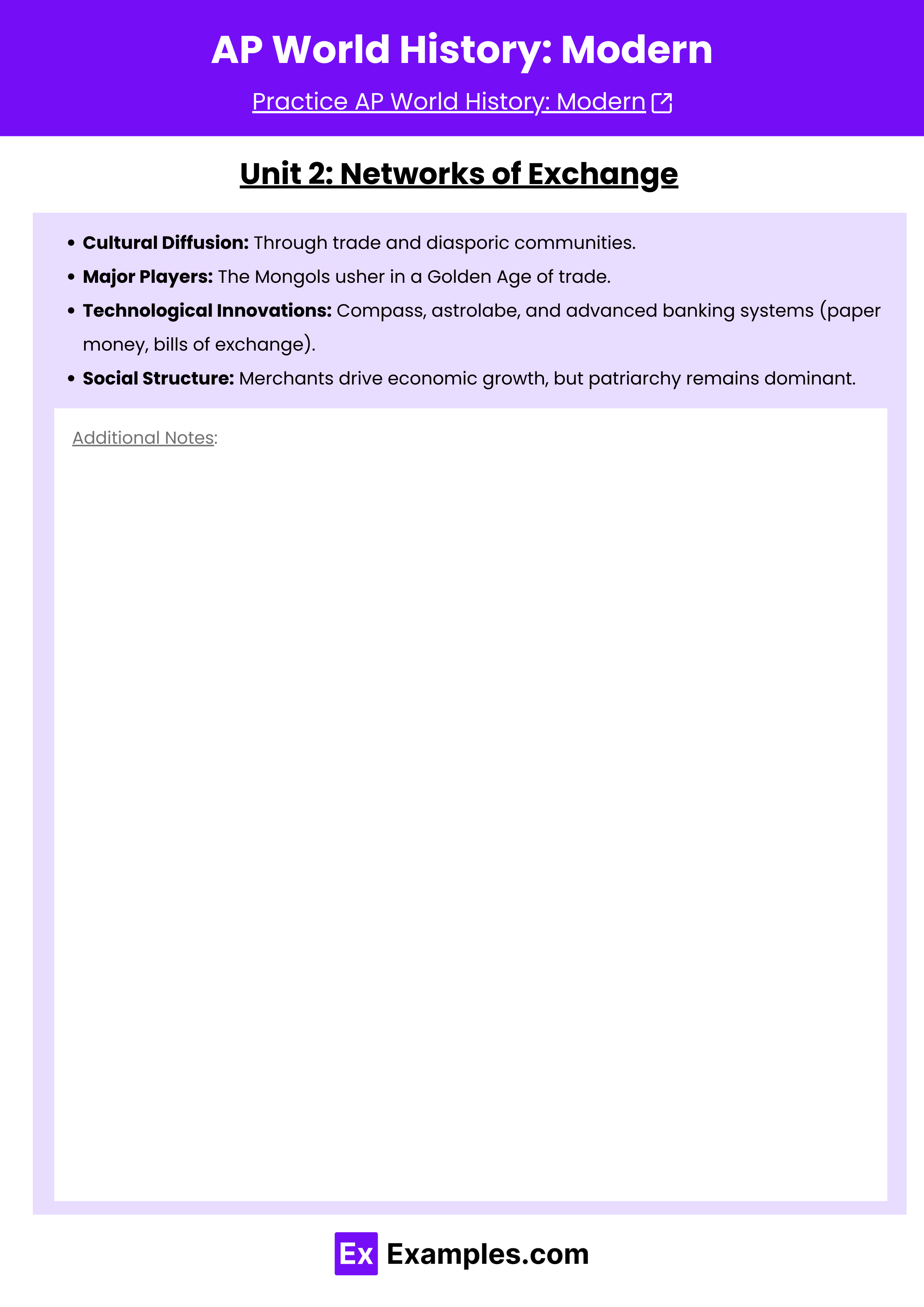
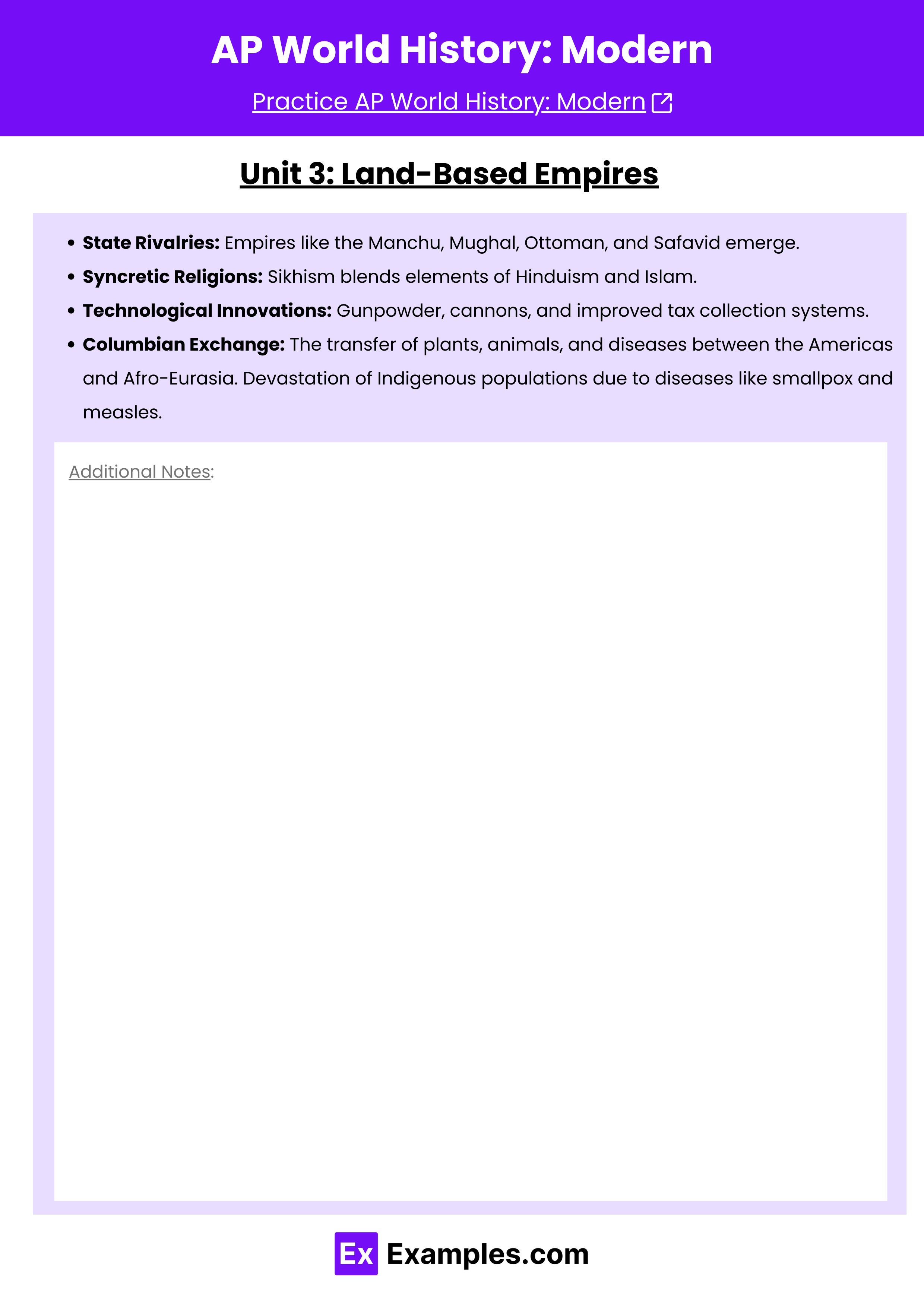
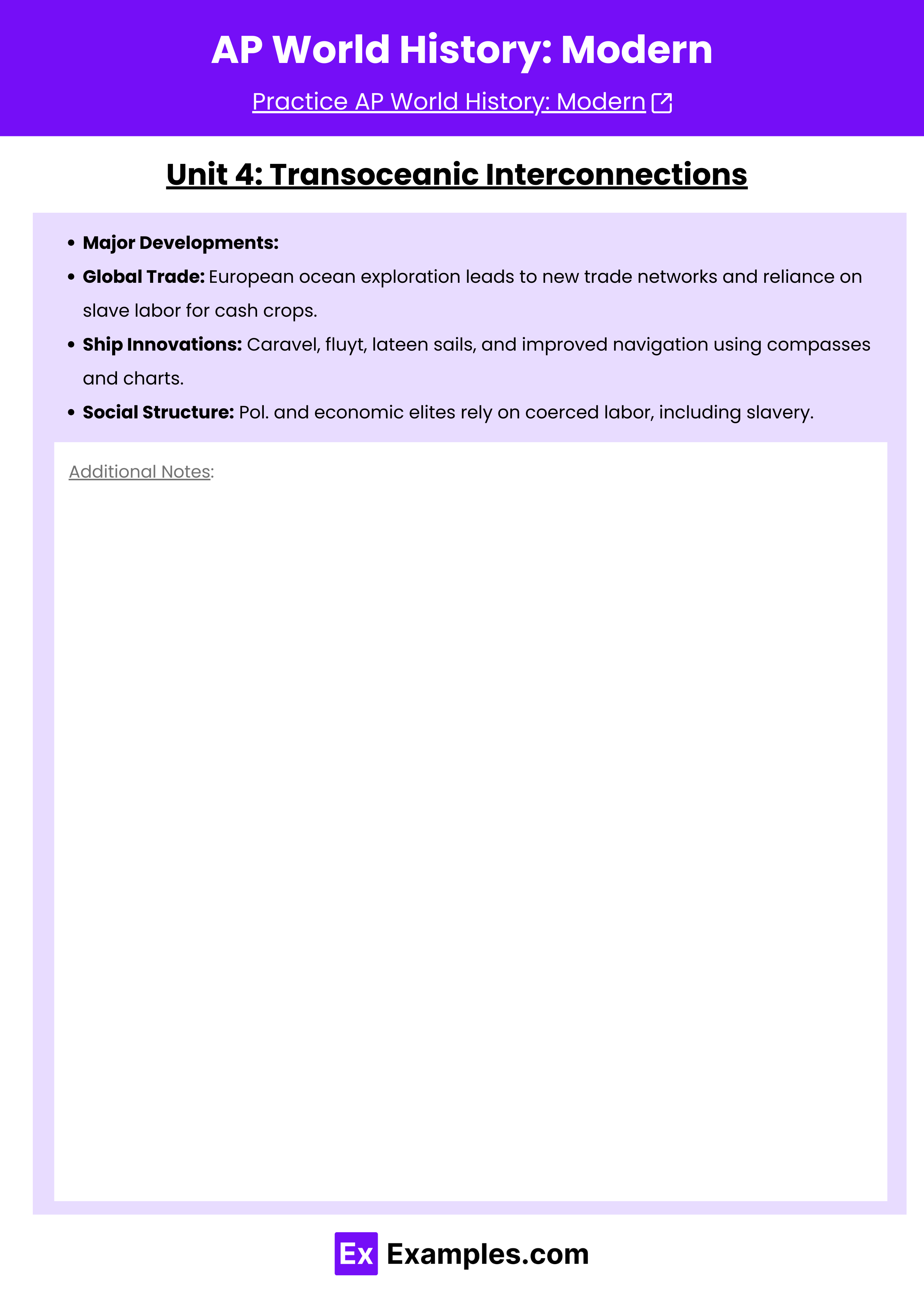
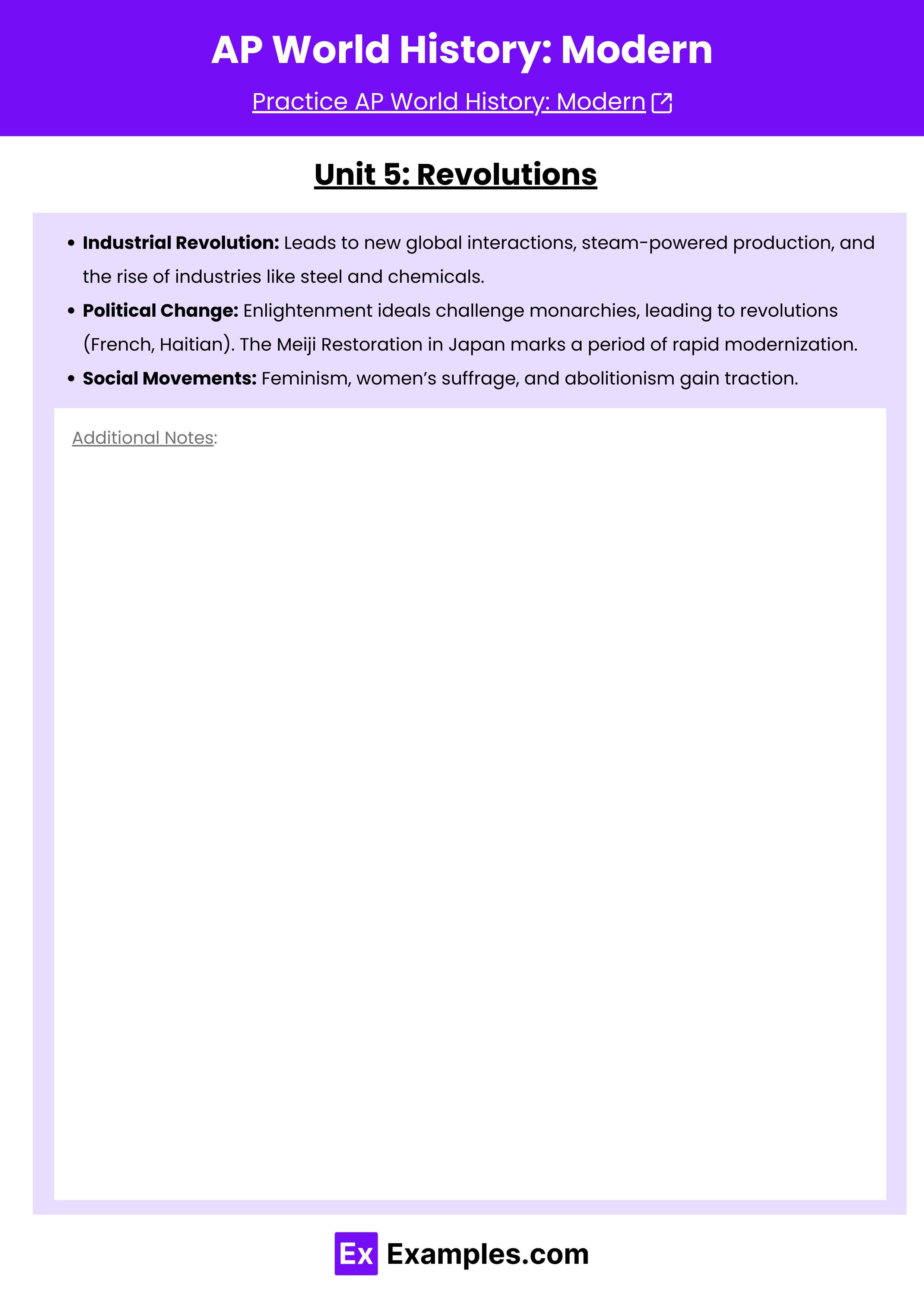
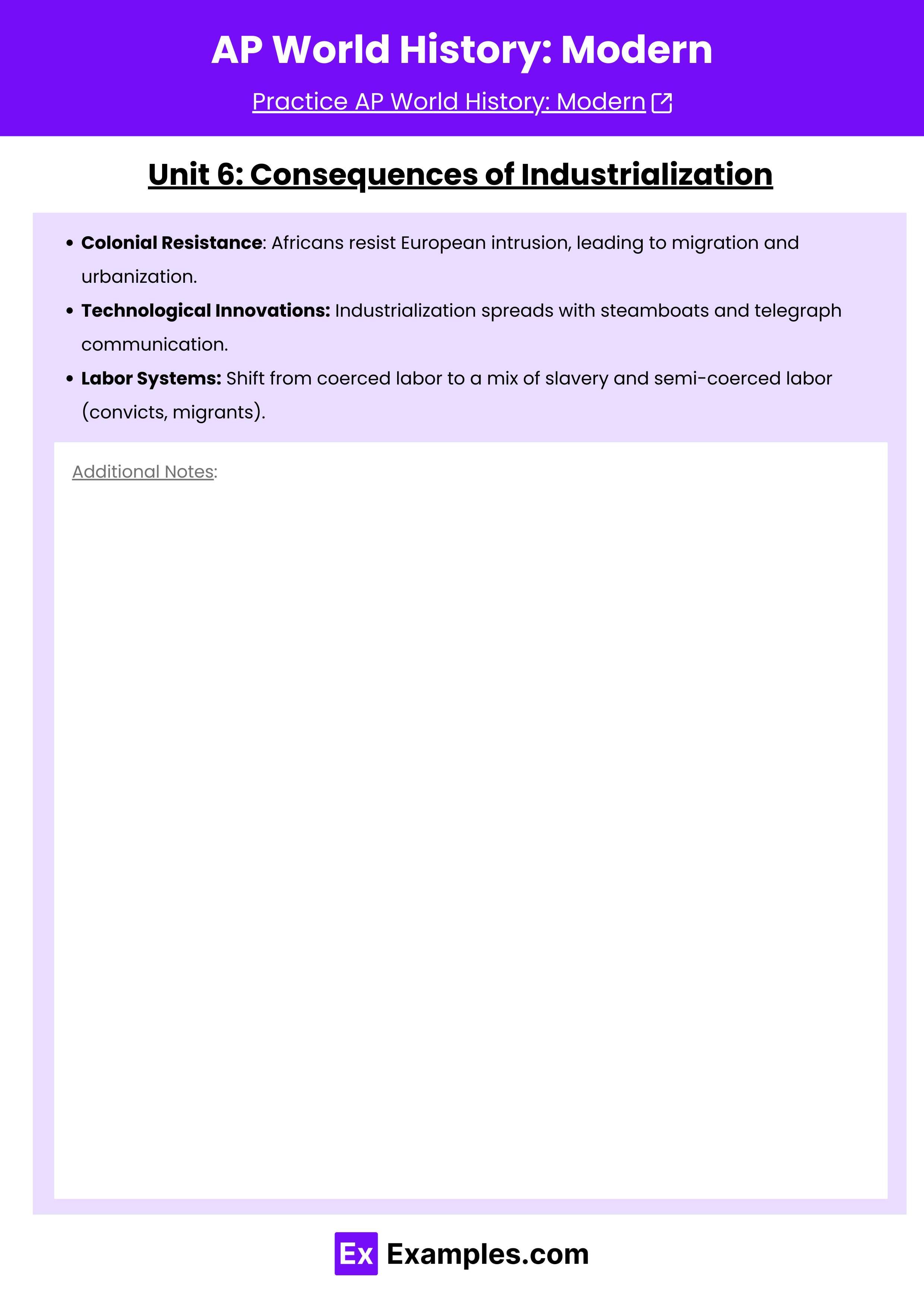
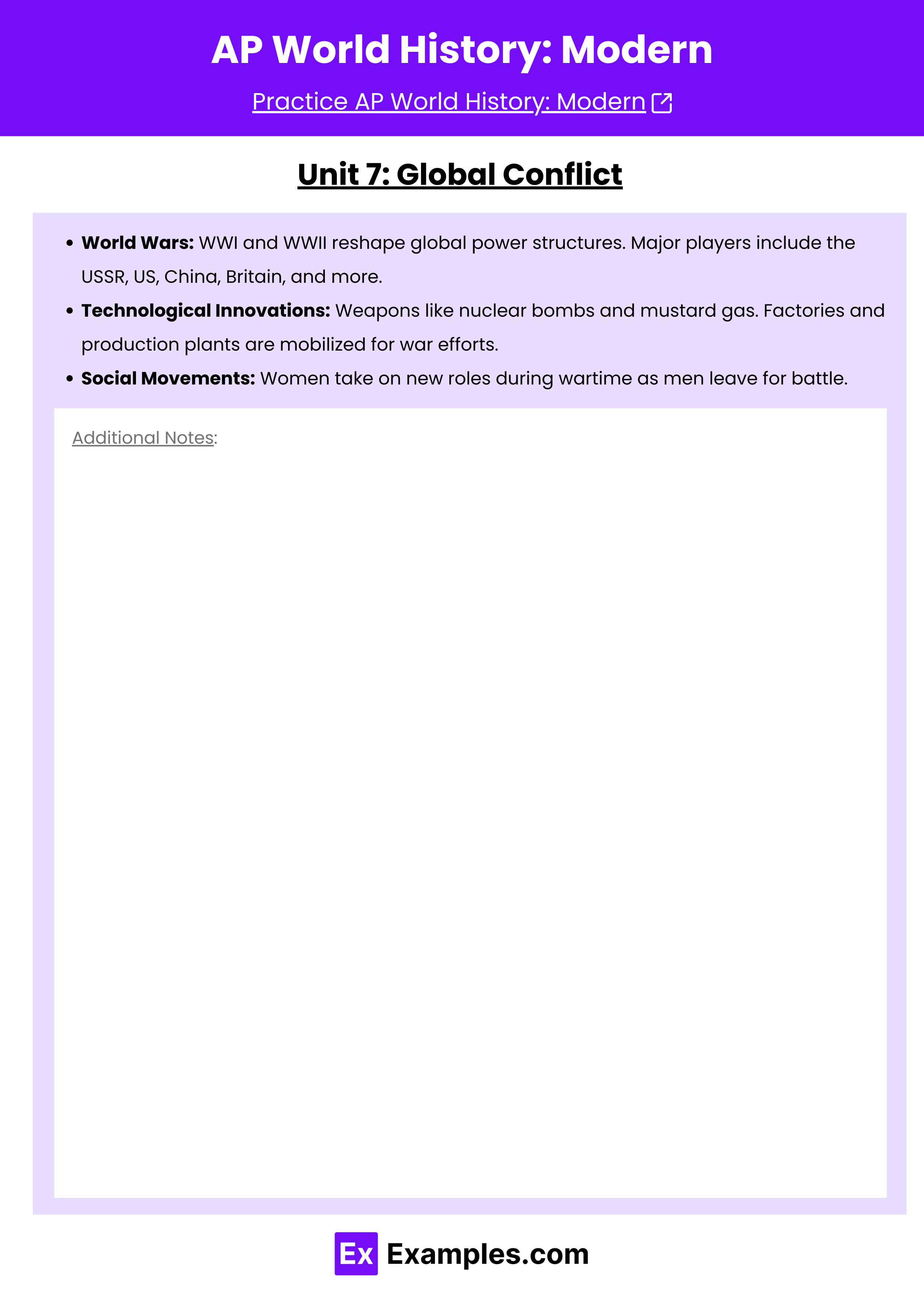
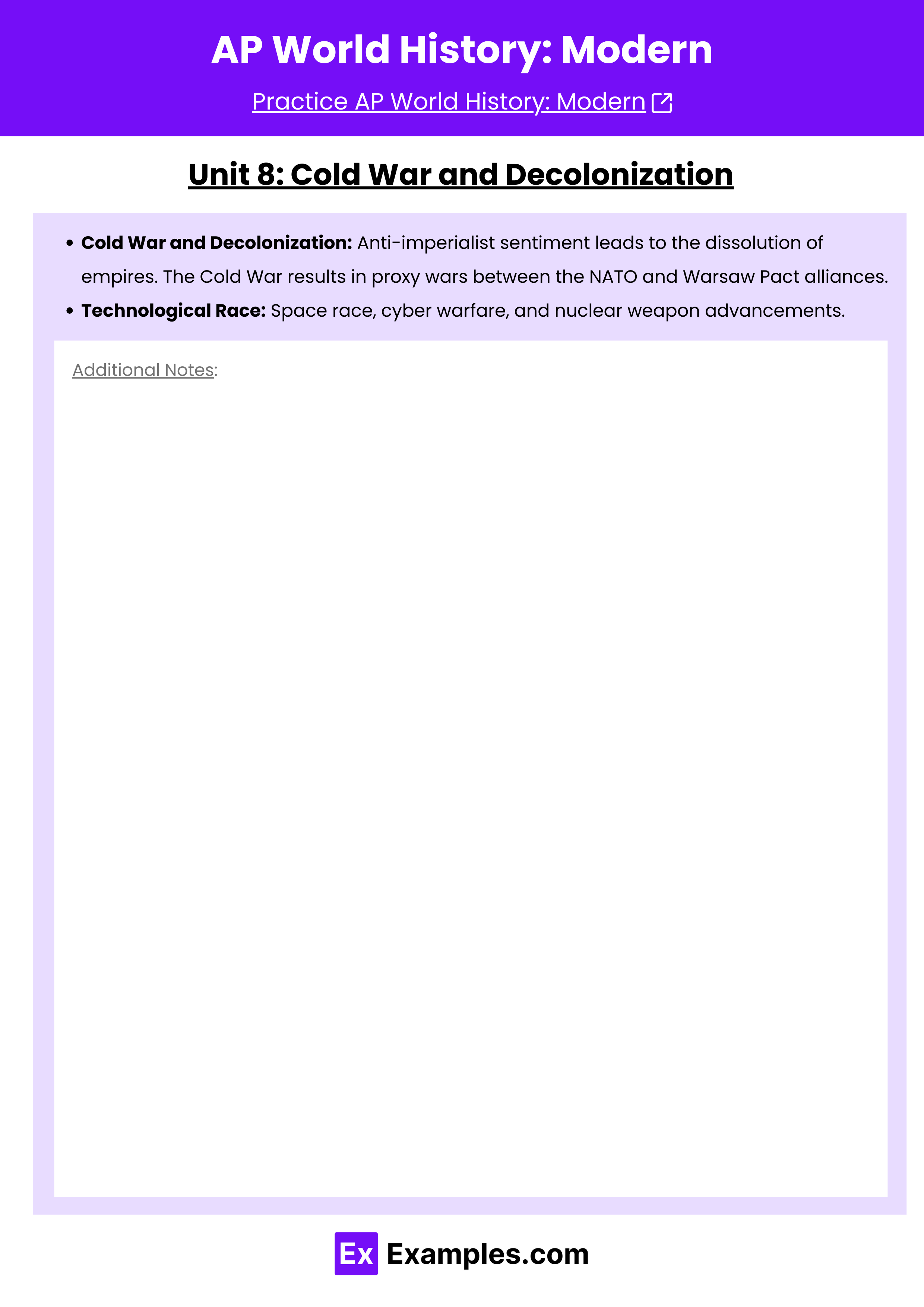
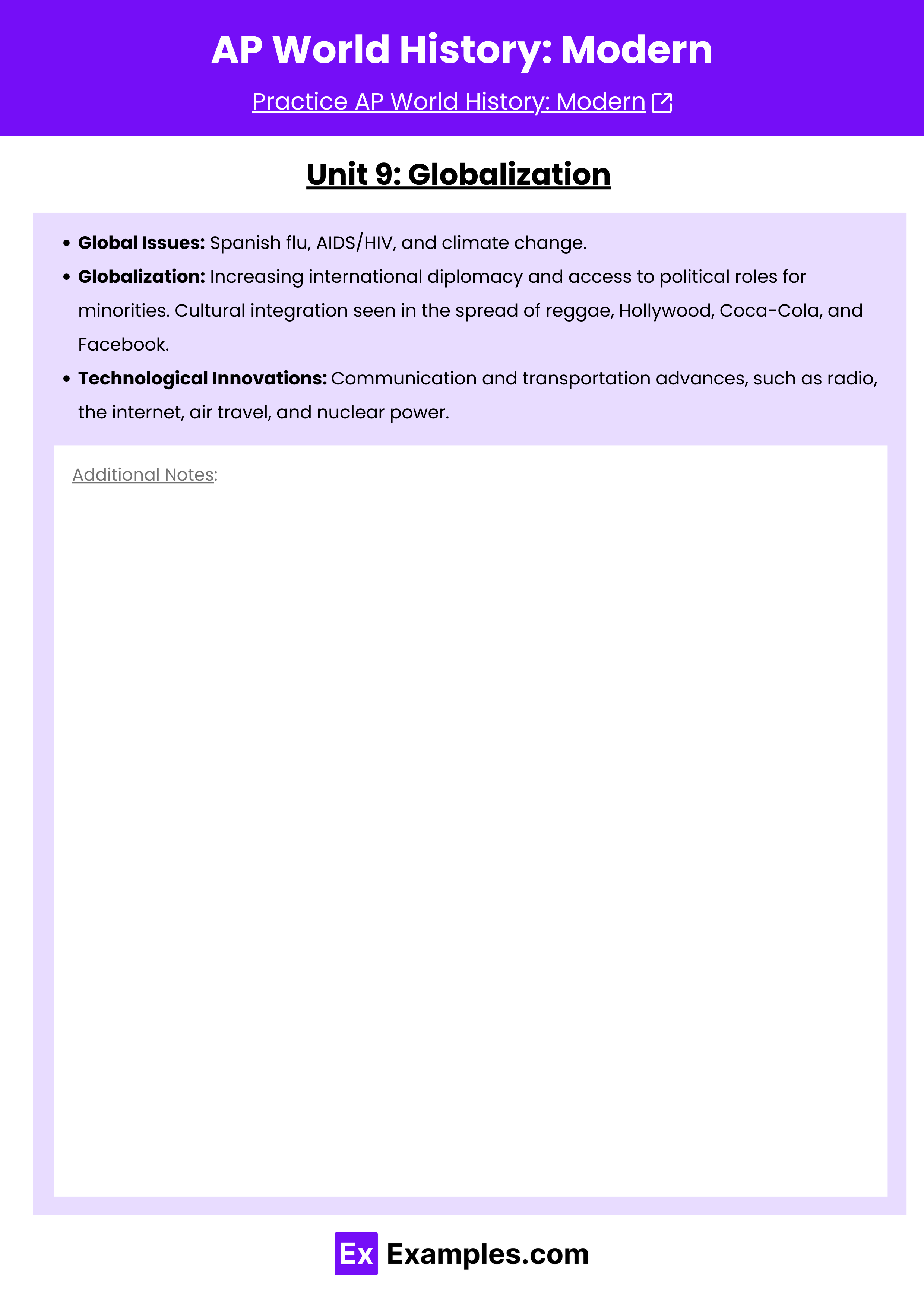
Download AP World History: Modern Cheat Sheet – Pdf
Unit 1: The Global Tapestry
- Religious Spread: Islam, Judaism, and Christianity to Africa and Asia; Hinduism, Islam, and Buddhism to South/Southeast Asia.
- Confucianism: Used to justify the Mandate of Heaven.
- Major Empires: Abbasid Caliphate collapses, leading to new Islamic political entities.
- Technological Innovations: Champa rice, Grand Canal expansion, steel and iron production.
- Social Structure: Patriarchy persists, with some rights for women, such as in Buddhist nunneries.
Unit 2: Networks of Exchange
- Cultural Diffusion: Through trade and diasporic communities.
- Major Players: The Mongols usher in a Golden Age of trade.
- Technological Innovations: Compass, astrolabe, and advanced banking systems (paper money, bills of exchange).
- Social Structure: Merchants drive economic growth, but patriarchy remains dominant.
Unit 3: Land-Based Empires
- State Rivalries: Empires like the Manchu, Mughal, Ottoman, and Safavid emerge.
- Syncretic Religions: Sikhism blends elements of Hinduism and Islam.
- Technological Innovations: Gunpowder, cannons, and improved tax collection systems.
- Columbian Exchange: The transfer of plants, animals, and diseases between the Americas and Afro-Eurasia. Devastation of Indigenous populations due to diseases like smallpox and measles.
Unit 4: Transoceanic Interconnections
- Major Developments:
- Global Trade: European ocean exploration leads to new trade networks and reliance on slave labor for cash crops.
- Ship Innovations: Caravel, fluyt, lateen sails, and improved navigation using compasses and charts.
- Social Structure: Pol. and economic elites rely on coerced labor, including slavery.
Unit 5: Revolutions
- Industrial Revolution: Leads to new global interactions, steam-powered production, and the rise of industries like steel and chemicals.
- Political Change: Enlightenment ideals challenge monarchies, leading to revolutions (French, Haitian). The Meiji Restoration in Japan marks a period of rapid modernization.
- Social Movements: Feminism, women’s suffrage, and abolitionism gain traction.
Unit 6: Consequences of Industrialization
- Colonial Resistance: Africans resist European intrusion, leading to migration and urbanization.
- Technological Innovations: Industrialization spreads with steamboats and telegraph communication.
- Labor Systems: Shift from coerced labor to a mix of slavery and semi-coerced labor (convicts, migrants).
Unit 7: Global Conflict
- World Wars: WWI and WWII reshape global power structures. Major players include the USSR, US, China, Britain, and more.
- Technological Innovations: Weapons like nuclear bombs and mustard gas. Factories and production plants are mobilized for war efforts.
- Social Movements: Women take on new roles during wartime as men leave for battle.
Unit 8: Cold War and Decolonization
- Cold War and Decolonization: Anti-imperialist sentiment leads to the dissolution of empires. The Cold War results in proxy wars between the NATO and Warsaw Pact alliances.
- Technological Race: Space race, cyber warfare, and nuclear weapon advancements.
Unit 9: Globalization
- Global Issues: Spanish flu, AIDS/HIV, and climate change.
- Globalization: Increasing international diplomacy and access to political roles for minorities. Cultural integration seen in the spread of reggae, Hollywood, Coca-Cola, and Facebook.
- Technological Innovations: Communication and transportation advances, such as radio, the internet, air travel, and nuclear power.
Key Dates to Remember:
- 1200s: Rise of the Mongols
- 1324: Mansa Musa’s pilgrimage
- 1453: Fall of Constantinople
- 1492: Columbus reaches the Americas
- 1750: Industrial Revolution begins
- 1914-1918: World War I
- 1939-1945: World War II
- 1945-1991: Cold War
- 1950s-1960s: Civil Rights Movement

